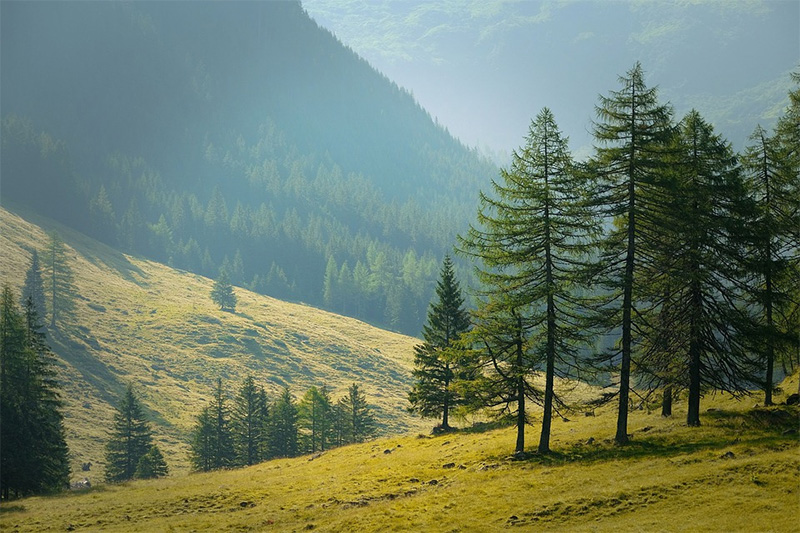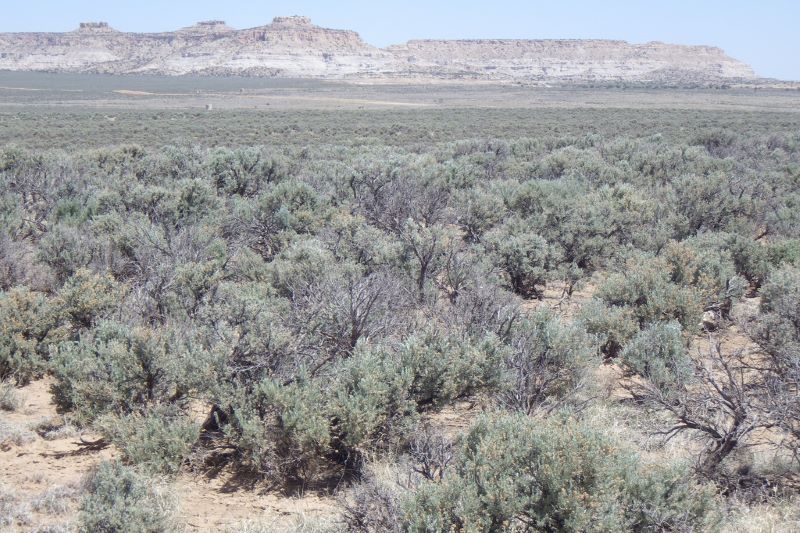Grades 3-5
Below are lesson resources that target Next Generation Science Standards Performance Expectations from grades 3-5.
Looking at Vegetative Growth and Elevation

Grade Level: 3-5
Performance Expectation Connections:
3-LS3-2. Use evidence to support the explanation that observable traits can be influenced by the environment.
3-LS4-3. Construct an argument with evidence that in a particular habitat some organisms can survive well, some survive less well, and some cannot survive at all.
3-ESS2-2. Obtain and combine information to describe climates in different regions of the world.
Science and Engineering Practices: Engaging in Argument From Evidence; Analyzing and Interpreting Data
Crosscutting Concepts: Patterns; Cause and Effect
Disciplinary Core Ideas: Inheritance of Traits; Variation of Traits; Adaptation; Weather and Climate
Possible Guiding Questions: Why is there a treeline? How can certain areas have similar climate but very different vegetation? How have different plants adapted to different elevations? How might climate change impact vegetation patterns on mountains?
Possible Instructional Uses: You may use this phenomenon to explore the relationship between environmental conditions and elevation, life zones, adaptations to different ecosystems, and climate change’s impact on vegetation.
Contributors: Martha Inouye, Clare Gunshanen, Sienna Wessel, Matthew Bisk
Date Uploaded: 11/11/21
Desert Vegetative Communities

Image: Matt Lavin - licensed under the CC Attribution-ShareAlike 2.0 Generic license.
Grade Level: 3-5
Performance Expectation Connections:
3-ESS2-1. Represent data in tables and graphical displays to describe typical weather conditions expected during a particular season.
3-ESS2-2. Obtain and combine information to describe climates in different regions of the world.
3-LS3-2. Use evidence to support the explanation that observable traits can be influenced by the environment.
3-LS4-3. Construct an argument with evidence that in a particular habitat some organisms can survive well, some survive less well, and some cannot survive at all.
Science and Engineering Practices: Engaging in Argument From Evidence; Analyzing and Interpreting Data; Constructing Explanations and Designing Solutions; Obtaining, Evaluating, and Communicating Information
Crosscutting Concepts: Patterns; Cause and Effect
Disciplinary Core Ideas: Adaptation; Variation of Traits; Weather and Climate
Possible Guiding Questions: How can Wyoming and Australia have similar vegetation despite their distance apart? How do temperature and precipitation impact plant communities? Why do deserts form in certain locations around the globe? What adaptations do plants have for living in dry, desert-like environments?
Possible Instructional Uses: You may use this phenomenon to investigate several different ideas. You may introduce students to ideas of global climatic conditions that impact the distribution of certain habitats. At a smaller scale, you may have students investigate the range of temperature and precipitation that is characteristic of different biomes. There is also an opportunity to explore various plant adaptations to dry, harsh conditions, explaining the distribution and appearance of various types of plants.
Contributors: Martha Inouye, Clare Gunshanen, Sienna Wessel, Matthew Bisk
Date Uploaded: 1/9/2022
